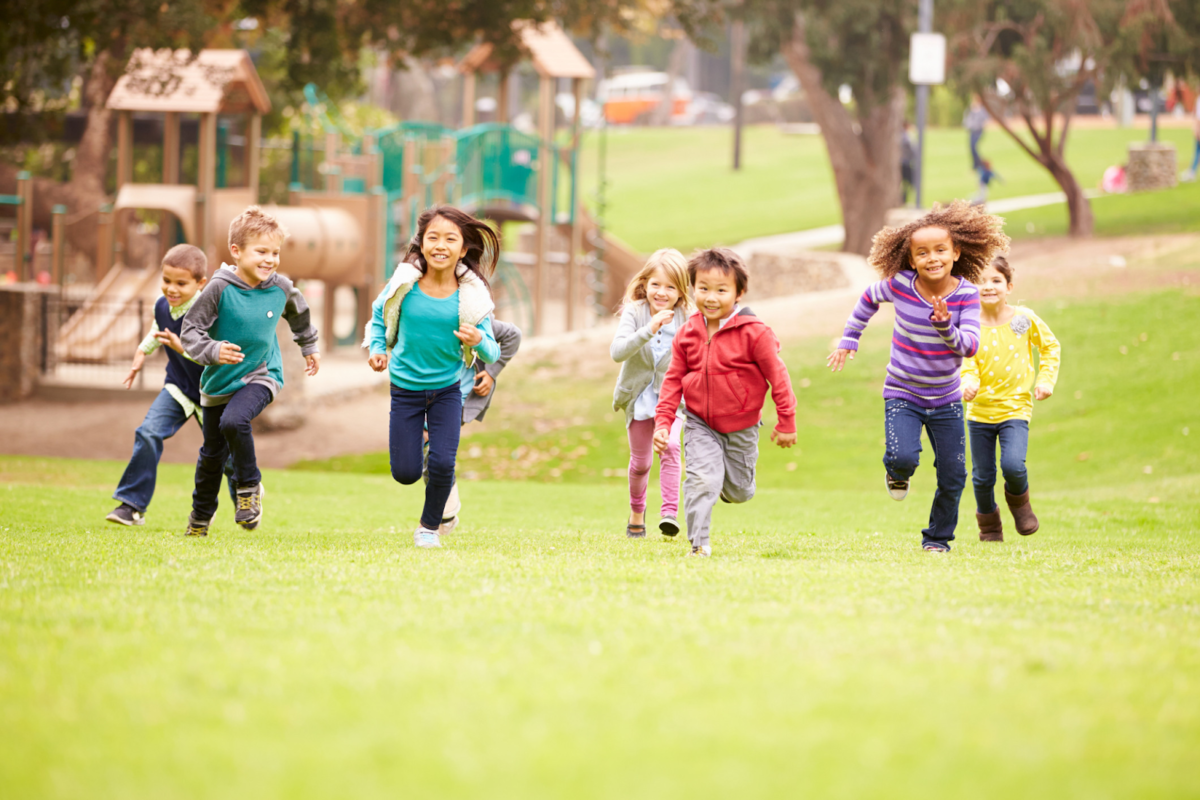10 Benefits of Outdoor Activities for Children
In today’s fast-paced digital age, children are spending more time indoors than ever before. With the increasing popularity of video games, smartphones, and streaming services, it’s easier than ever for kids to become disconnected from the natural world.
Therefore, it is important to encourage your children to engage in outdoor activities. From physical health to mental well-being, outdoor activities provide plenty of advantages for young minds and bodies.
In this blog post, we’ll explore ten key benefits of outdoor activities for children and why it’s essential for kids. So, without further ado, let’s get started.
1. Physical Health and Fitness
In a world where childhood obesity is on the rise, outdoor activities offer an effective way to combat this issue. Engaging in outdoor activities helps children develop strong bones and muscles, and maintain a healthy weight. Regular exposure to fresh air and sunshine also promotes overall well-being.
Activities such as playing catch, riding a bike, or climbing a tree require coordination and balance, which are essential for a child’s overall physical development. These activities also help kids improve their awareness and motor skills.
Exposure to natural sunlight is also crucial for the production of vitamin D, which plays a vital role in maintaining strong bones and a healthy immune system. Encouraging children to spend time outdoors ensures they get their daily dose of vitamin D. This reduces the risk of conditions such as rickets.
2. Emotional and Social Well-Being
Outdoor activities play a crucial role in nurturing a child’s emotional and social development. Spending time outside encourages mindfulness and helps children connect with their feelings and emotions. In a nutshell, nature provides a safe space for self-expression and self-discovery.
Moreover, outdoor play involves group activities which allows children to develop essential social skills. Activities such as building a sandcastle with friends at the beach or participating in team sports at the park can promote cooperation, communication, and teamwork. These experiences help children build strong, lasting relationships with their friends too.
In addition to social skills, outdoor activities also teach children resilience and adaptability. Nature can be unpredictable at times, and children must learn to cope with changing weather conditions and unexpected challenges such as not finding the perfect spot to set up a picnic.
These experiences teach children how to adapt to different situations and develop resilience.
3. Reduced Screen Time
In recent years, excessive screen time has become a huge concern for parents. Children are spending more hours in front of screens, which can have adverse effects on their physical and mental health. Encouraging outdoor activities is an effective way to help them reduce screen time.
When children are immersed in outdoor play, they have less time for screen-based entertainment. By setting limits on screen time and providing immersive outdoor alternatives, parents can instill a balanced approach in their children.
Furthermore, outdoor activities can be just as engaging and entertaining as video games or movies. Whether it’s building a fort in the woods, going on a treasure hunt, or simply running through an open field, the great outdoors offers endless opportunities for fun and adventure.
Encouraging children to experience the joy of outdoor play can help them appreciate the beauty of the natural world.
4. Increased Creativity
The open-ended nature of outdoor play instills creativity in children and allows kids to invent their own games, stories, and adventures. Natural materials like sand, water, and rocks become tools for imaginative play that can stimulate creativity and storytelling.
Children can build forts, create art with natural materials, or invent their own outdoor games, all of which will nurture their creative thinking. These imaginative activities also help children develop problem-solving skills since they need to come up with innovative solutions to challenges they encounter during these adventures.
5. Better Motor Skills
Engaging in outdoor play encourages the development of essential motor skills in children. Activities such as climbing, running, jumping, and swinging all require coordination and balance, which can help kids refine their motor skills.
Their motor skills also improve as they explore natural materials like rocks, sticks, and leaves or engage in activities like drawing in the sand.
These physical experiences contribute to better hand-eye coordination, improved balance, and increased strength. Moreover, developing these motor skills at a young age provides a strong foundation for other physical activities as children grow.
6. Improved Sleep Patterns
When children engage in outdoor play, they will expend plenty of physical energy, which makes them naturally tired and more likely to sleep well at night.
Being outdoors also exposes them to natural daylight which can help regulate their internal body clock and thus improve their sleep quality. Additionally, spending time in nature reduces stress levels, making it easier for children to relax and fall asleep.
These activities can establish a consistent routine, where physical activity during the day is followed by restful sleep at night.
7. Environmental Awareness
In an era of environmental concerns, instilling a sense of environmental awareness in children is vital. Outdoor activities provide an ideal platform for teaching kids about the environment and their role in preserving it.
Through outdoor experiences, children can learn about local ecosystems, wildlife, and the importance of conservation. Participating in activities like tree planting, nature clean-ups, or wildlife observation helps them understand their responsibility as a member of society.
8. Cognitive Development
The outside world offers a rich environment that can improve cognitive growth. Nature is just like a classroom where children can learn through exploration and observation. Being outdoors sparks curiosity and creativity, and also encourages problem-solving and critical thinking.
For instance, identifying different birds, plants, or insects fosters observational skills, while building a fort or navigating a trail requires reasoning and strategic planning. These experiences not only keep kids mentally engaged but also teach them valuable life skills.
9. Greater Independence
Outdoor activities allow children to explore and make decisions independently. They learn to navigate their surroundings, assess risks, and solve problems on their own. This fosters a sense of autonomy and self-reliance.
10. Boosted Immune System
Spending time outdoors exposes children to a variety of microorganisms and allergens, which can help strengthen their immune systems. Exposure to diverse environments helps build resistance to common illnesses and allergies.
Fun Outdoor Activities for Children

Here are some of the fun activities that you can encourage your children to do:
1. Picnic Adventures
A simple picnic can turn into an exciting outdoor adventure for children. Picnic adventures provide an opportunity for children to socialize, exercise, and appreciate the beauty of outdoor settings. Plus, the change of scenery and relaxed atmosphere can make meals more enjoyable for the whole family.
2. Biking
Biking is a classic outdoor activity that children of all ages can enjoy. Riding bicycles not only provides exercise but also gives kids a sense of freedom and adventure.
Make sure that your children wear helmets and follow safety rules when biking. Biking is an excellent way for the entire family to spend quality time outdoors and stay active together.
3. Nature Scavenger Hunt
A nature scavenger hunt is another fantastic way to engage children with the natural world. You can start by creating a list of items typically found in nature, such as pinecones, feathers, leaves, or even animal tracks.
Then, hand over the list to the children and let them explore their surroundings, checking off items as they find them. This activity not only encourages kids to observe and interact with their environment but also teaches them about different elements of nature.
4. Stargazing
On clear nights, stargazing can be a mesmerizing outdoor activity for children. You can lay out blankets in your yard or a suitable dark spot away from city lights. Look up at the night sky and observe the stars, planets, and constellations.
You can even use a stargazing app on a smartphone to help locate stars and planets. Stargazing not only sparks a sense of wonder and curiosity but also provides an opportunity for learning about astronomy and the universe.
5. Gardening
You can also teach children about nature and responsibility by starting a small garden in your backyard or lawn. Allow them to plant flowers, vegetables, or herbs and care for them. This will help them connect with nature and make them more responsible in the future.

